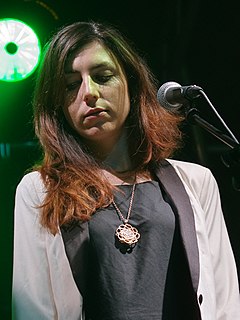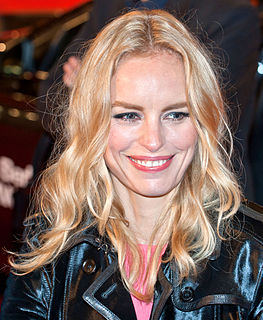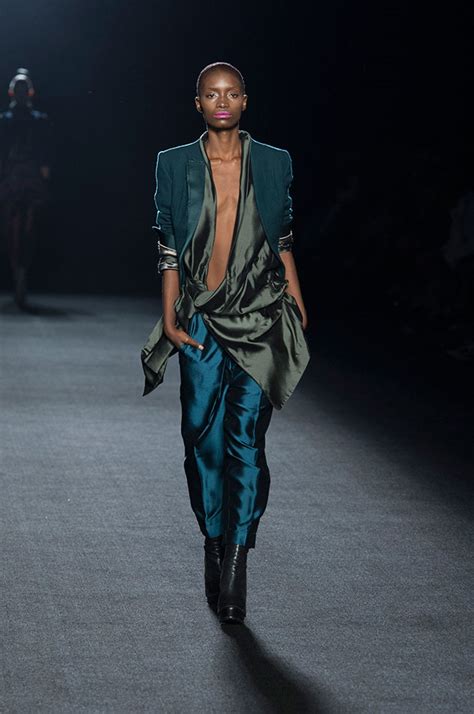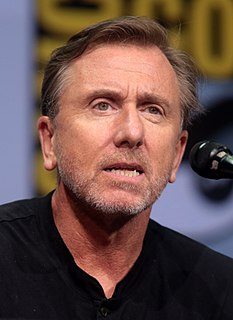A Quote by Julia Holter
'Betsy' is one of my favorites because it is the one to which I've imposed the least clear narrative. To me, it's so much more about the feeling - desperation - than any kind of story at all. There's very little imagery or character development; it's just about a deep and desperate search for something.
Related Quotes
I think my sensibilities about storytelling and character just automatically come into play when I'm trying to work on any kind of narrative. For me, it doesn't really matter what the source of the narrative is. I will be looking for ways to make it into an intriguing story with empathetic characters.
We really have a close friendship with Christian Petzold, which means we can be more frank and open towards each other, always with total respect. But, we push each other a bit further and further always, and we're always still curious about each other. And when he talks about a story he's thinking of doing, then the whole process is so special because I'm involved in a very early stage and I have the feeling I can, and not only, influence anything about my character, but about the whole story that my character's in.
There is something very unstabilizing about not knowing where you're coming from or where you're going. There's something very romantic about it, because you have this search for the unknown. But at the same time, sometimes I'm like, "God, if I were to die tomorrow, where would I like to be buried?" I wouldn't know. That's kind of a heavy thought, but it's a fact. You don't know anymore where you belong.
I believe a good writer can write a good book with any sort of character, in any sort of setting, but I prefer to write about the outsider. It might just be because I've been one (or perceived myself to be one) for so much of my life. But the simple fact of being marginalized immediately brings conflict to a story before the narrative even begins, and that's gold for a writer because it means that your character already has depth before events begin to unfold.
If we can continue to come together and work on small things little by little, at least it's something. It's a start. At least now there's a lot more talk about climate change and the Earth's state than when I was a kid. I guess it's better late than never? But it's also very tricky because this is something that's so important to so many of us, and a lot of people don't see it that way. But hopefully, we can get all our points across to them - one by one, one person at a time.
Well, I don't know anything about television. I'd never done it before. Initially, it was quite daunting to take on so much challenge and so much time with it. I think it is a great outlet for an actress because you really have 13 hours to bring a character to life, which is so much more than with film, and you have the luxury of time to tell a story and to really color a character.
Having that little bit of breathing room to work, and not feeling like it's going to fall apart at any second, has allowed me to recover the feeling I had when I was a little kid, when I was writing stories for fun or drawing pictures for my parents to put on their refrigerator. It was about playing and doing something fun, and kind of making your own little world. And that's how art should feel for me, and how having a little bit more distance between my ass and the ground has helped me.
For queer people, the personal is very political, just to talk about it in a public space. It's very political just to come out and take up that space and be like, 'This is my narrative. It's not an outsider narrative, and it's not a fetish narrative; it's just my story, and it's worth being told and listened to.'
When something arrives, you have no idea what's in it, which is good. And then, it's is the story leaps off the page at you and how your character functions within it. There could be just one scene and if it's wonderful, it doesn't matter how much you're working on it because you just want to be in it. It's really about what your character's day to day world looks like, and if you feel like that's something that's complete, and that you'd like to inhabit for awhile. You'll know by a couple of scenes in. If the character grabs you, you run with it.
The millennium development goals are important, both morally and economically, because much of the world's population maybe is as much as a third of the world's population hasn't yet reached the level of economic development where we begin to get a dissociation from people's economic status and their reports about personal happiness. So we really do need to do much more and much more effectively in order to give everyone the kind of basis for which they can have good vibes.
The difference when I'm writing a story versus writing a joke is that writing a joke is so much more about the structure and it's less about the conversation. To me, the thing that I love about stand-up is the intimacy between performer and audience.To get it even more conversational was something that really appealed to me and that I really enjoyed doing. My early experiments with it, with just telling a story from my life on stage, it was so satisfying to do. And seemingly for the audience as well. It's a different thing, and it's a different feeling and a different vibe.




































